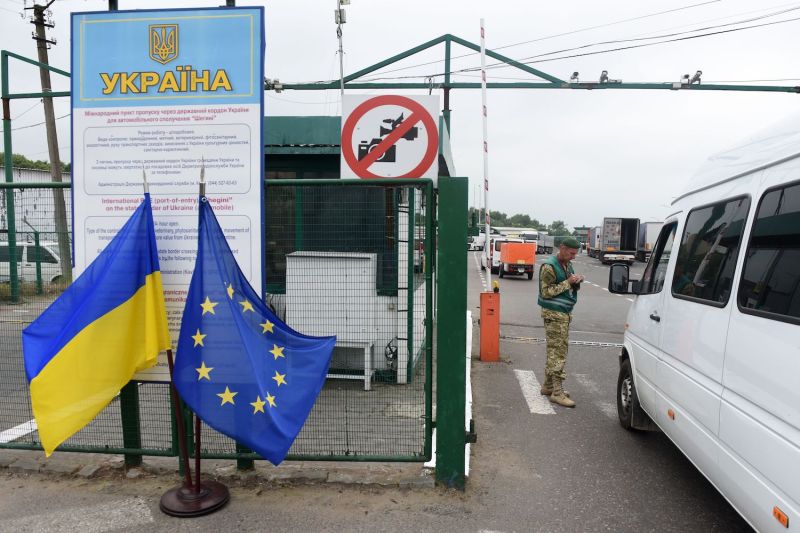Books
FP’s Holiday Book List
Our columnists and staff writers recommend their top reads for the end of the year.
At Foreign Policy, it’s not the holidays until we’ve asked our columnists and staff writers for their book recommendations. Off duty, their tastes are eclectic—from fantasy epics to suspenseful works of reportage on subjects as varied as Hong Kong dissident Jimmy Lai and an Indigenous group that struck gold in the Amazon. Read on for a list of their favorite books of 2024.
Brothers
Alex Van Halen (Harper, 240 pp., $32, October 2024)
At Foreign Policy, it’s not the holidays until we’ve asked our columnists and staff writers for their book recommendations. Off duty, their tastes are eclectic—from fantasy epics to suspenseful works of reportage on subjects as varied as Hong Kong dissident Jimmy Lai and an Indigenous group that struck gold in the Amazon. Read on for a list of their favorite books of 2024.
Brothers
Alex Van Halen (Harper, 240 pp., $32, October 2024)
I am a walking, talking exemplar of a Gen X kid. In high school, I didn’t exactly have a mullet, but my hair “landed,” I wore Nike high tops, and I was rarely seen without Vuarnet sunglasses. As a Long Island boy, I was also destined to be a fan of “big rock.” I was 11 when Van Halen’s debut album dropped, and I had floor seats at Madison Square Garden six years later when the band conquered the world in their 1984 tour. Is it any surprise that I preordered Alex Van Halen’s book, Brothers, months before its publication?
Brothers is much more than the story of Van Halen’s rise from a backyard party band to one of the world’s biggest rock acts. It is a love letter to a younger brother with otherworldly talents who died in 2020 and, importantly, an immigrant story. Alexander and Edward “Eddie” van Halen were young when their Dutch father and Indonesian Dutch mother moved them from the Netherlands to Pasadena, California. Lost in all the success (and drama) around Van Halen—which the brothers formed in the early 1970s with David Lee Roth and Michael Anthony—is that the boys endured the hardships of a typical immigrant experience. They worked odd jobs, slept in the hallway of a tiny house, and relied on each other for everything in their unfamiliar surroundings.
Brothers is an unexpectedly great read, both hilarious and poignant. Alex and his brother clearly shared a deep emotional and psychic connection—one that made its way into their music—that had much to do with their experience of coming to America.
—Steven A. Cook, FP columnist
When We Sold God’s Eye: Diamonds, Murder, and a Clash of Worlds in the Amazon
Alex Cuadros (Grand Central Publishing, 320 pp. $32, December 2024)
Among code-switchers, it’s hard to imagine someone who inhabits two worlds as different as Nacoça Pio Cinta Larga does. Pio is a member of an Indigenous group in the Brazilian Amazon that only came into sustained contact with Westerners in the 1960s. In When We Sold God’s Eye, reporter Alex Cuadros tells the true story of how mineral riches, a swarm of prospectors, and a desire to do right by his people led Pio to run a lucrative diamond mine by the early 2000s.
Brazil has ample government policies devoted to protecting Indigenous people and the rainforest. One of the most fascinating elements of this story is seeing how those policies run up against the moral dilemmas of first-time contact between white and Indigenous Brazilians. How soon should the latter be subject to the former’s legal code, for example? The quandaries play out on an intimate scale thanks to the details Cuadros gleaned in extensive interviews with Pio and his peers. This book has the pace of a novel and the whodunit suspense of investigative journalism.
—Catherine Osborn, FP’s Latin America Brief writer
Greta & Valdin: A Novel
Rebecca K. Reilly (Avid Reader Press/Simon & Schuster, 352 pp., $28, February 2024)
Do a quick audit of the English-language books on your shelf. If you’re like me, most of them are probably American and British products. Others might be Canadian, Irish, or Indian. But only when I picked up Greta & Valdin this year did I realize that I’d never intentionally read a novel from New Zealand, much less one by a Maori author.
First published in New Zealand in 2021, Maori novelist Rebecca K. Reilly’s bestselling debut was released in the United States in February. Greta and Valdin are two siblings who live together in Auckland, navigating the torrents of their mid-to-late 20s—romance, career crises, and all. Their family is half-Russian and half-Maori, with Catalan ties; both siblings and many relatives are queer. Reilly’s prose is unembellished but all-consuming, with a caustic tone, similar in style to that of Sally Rooney or Elif Batuman.
Although Greta and Valdin are often the only Maori people in work conference rooms or university lecture halls, their blended identities and sexualities are rarely called into question by their peers. Reilly’s most powerful contribution in Greta & Valdin is her rendering of modern New Zealand identity as one that can be inclusive—where queerness and multiculturalism exist as norms.
—Allison Meakem, associate editor
The Troublemaker: How Jimmy Lai Became a Billionaire, Hong Kong’s Greatest Dissident, and China’s Most Feared Critic
Mark L. Clifford (Free Press, 288 pp., $28.99, December 2024)
The first time I saw Jimmy Lai, we were both getting tear-gassed by the Hong Kong police. It was 2014, and Lai was on the front lines of the city’s pro-democracy protests that came to be known as the Umbrella Revolution. Dressed in blue jeans and an untucked white shirt, with a backpack slung over his shoulders, he splashed water over his face to blunt the sting of the gas. One would never have guessed he was a billionaire media tycoon.
A decade later, Lai is languishing in Hong Kong’s Stanley Prison as he stands trial under the territory’s new national security law, which officials have used to target critics of the Chinese Communist Party. But in The Troublemaker, journalist and democracy advocate Mark L. Clifford goes back a few more decades to chronicle Lai’s rags-to-riches-to-resistance story, from his impoverished childhood in mainland China to successive empires in textiles, retail, and media. The last of those empires is what landed Lai in China’s crosshairs, as his publications became a vehicle for his deeply held commitment to free expression and democratic rights.
Through conversations with Lai and those who know him best, Clifford portrays a man equal parts mythical and ordinary, who has poured his considerable resources into opposing an oppressive regime—at great personal cost.
—Rishi Iyengar, staff writer
How the World Made the West: A 4,000 Year History
Josephine Quinn (Random House, 592 pp., $38, September 2024)
As someone who enjoys reading histories that challenge long-standing conventions about the past—and has written one, placing Africa’s story at the center of the narrative about the birth of modernity—I particularly admired How the World Made the West by Josephine Quinn.
This book amounts to a sustained and erudite assault on the cherished notion many hold of today’s West being a direct descendant of Greek civilization, but it goes further even than this. Quinn, an accomplished historian at the University of Oxford, also shows how ancient Greece itself drew heavily from other civilizations in Africa and Asia for science, religion, and myth. What makes her book all the more remarkable is its readability. For a work as deeply learned and clearly argued, it never comes across as heavy-handed or pedantic. No one who reads it will come away without scores of surprises.
—Howard W. French, FP columnist
Unrequited Infatuations: A Memoir
Stevie Van Zandt (Hachette Books, 416 pp., $31, September 2021)
I highlighted some of my favorite recent books and authors in my Thanksgiving column, but for the holiday season, I’m recommending Stevie Van Zandt’s Unrequited Infatuations, published in 2021. You know him as “Little Steven,” guitarist and consigliere of the E Street Band, not to mention his TV roles in The Sopranos and Lilyhammer. What you may not know is that he has also been a highly effective activist for global justice, most notably in the 1980s struggle against apartheid. Come for the rock ’n’ roll; stay for the portrait of an inspired and passionate artist with a conscience.
—Stephen M. Walt, FP columnist
Putin’s Wars: From Chechnya to Ukraine
Mark Galeotti (Osprey Publishing, 384 pp., $35, November 2022)
Since the vaunted Russian army got bogged down on the road to Kyiv more than two years ago, and then lost more than half a million troops taking an area half the size of the U.S. state of Georgia, we’ve all wondered: How is it that the Russian army is this bad, and why does Russian President Vladimir Putin keep using it?
Mark Galeotti has you covered with Putin’s Wars. The book first came out just after the full-scale invasion of Ukraine, but he has updated it nicely to include all the latest debacles.
My editors said no one over the holidays would want to read an in-depth study of Russian military reforms from the immediate post-Soviet period through the rise of Putin, the first and second Chechnyan wars, the invasion of Georgia, or the first and second Ukrainian wars, with all the tales of drunk conscripts, corruption, not-so-special forces, and foolish decision-makers. I said, I bet they would.
—Keith Johnson, staff writer
Chain-Gang All-Stars: A Novel
Nana Kwame Adjei-Brenyah (Pantheon, 384 pp., $28, May 2023)
In Nana Kwame Adjei-Brenyah’s striking debut novel, Chain-Gang All-Stars, the most popular entertainment program isn’t your typical dating show or bake-off. It’s another kind of reality TV, where inmates in the sweeping U.S. private prison industry fight and kill their way to freedom—a program officially known as Criminal Action Penal Entertainment (CAPE).
All of this is televised live, but die-hard fans sip IPAs and cheer on their favorite prisoners at the gladiator-style matches while protests rage outside the arena. CAPE’s biggest star, a woman named Loretta Thurwar, is just a few wins away from securing her freedom—but is already a sort of influencer celebrity, replete with corporate sponsorships and legions of fans.
If that sounds nauseating, I’m right there with you. But the uneasy brilliance of Chain-Gang All-Stars is that even as it unnerves and horrifies, it’s impossible to put down. Adjei-Brenyah is a masterful writer, sprinkling the story with footnotes that lay bare how the foundations of his brutal system aren’t as fictional as they may seem.
—Christina Lu, staff writer
In Confidence: Moscow’s Ambassador to Six Cold War Presidents
Anatoly Dobrynin (University of Washington Press, 688 pp., $35, February 2001, paperback)
Anatoly Dobrynin arrived as the Soviet Union’s ambassador to the United States in 1962 and remained for an astonishing 24 years, which meant he engaged with every administration from John F. Kennedy’s to Ronald Reagan’s. And his dealings were not merely diplomatic formalities. Dobrynin, perhaps by being a bit more personable and flexible than typical Soviet diplomats, managed to establish close relations not just with presidents but also with secretaries of state and other officials. Indeed, together with Henry Kissinger, he ran the famous back channel that enabled U.S. President Richard Nixon and Soviet leader Leonid Brezhnev to pursue their successful and largely unexpected policy of détente.
In Confidence is an extraordinary account of how diplomacy works at its best. That doesn’t make every participant a saint, but it does make for a spellbinding chronicle.
—Elisabeth Braw, FP columnist
Judgment at Tokyo: World War II on Trial and the Making of Modern Asia
Gary J. Bass (Knopf, 912 pp., $46, October 2023)
Most Americans with even a passing interest in contemporary history and international affairs have some familiarity with the Nuremberg trial. However, many are likely to be unaware of the Tokyo War Crimes Tribunal that prosecuted Japanese leaders after World War II and sentenced seven defendants to death and 16 to life in prison. Gary J. Bass, a politics professor at Princeton University, has written a diligently researched, deftly argued, and lucid account of the trial.
Unlike much previous work on the subject, Bass’s Judgment at Tokyo does not give short shrift to the views of the three dissenting judges. Indeed, the book goes into extraordinary detail about the role and the jurisprudence of one of them, Radhabinod Pal, a jurist from India. Bass’s careful elaboration of Pal’s principled dissent alone makes this book an absorbing read.
—Sumit Ganguly, FP columnist
The Bone Season (Author’s Preferred Text)
Samantha Shannon (Bloomsbury Publishing, 624 pp., $19.99, May 2024, paperback)
I was already a fan of Samantha Shannon’s bestselling The Priory of the Orange Tree when my roommate plopped The Bone Season into my lap. Unlike the high fantasy epic that pushed Shannon into stardom, this seven-book series is a grounded, gritty tale of one woman’s desperation to survive the unthinkable.
Welcome to the Republic of Scion, a British empire stretching from Sweden to Greece, where the government carries out ruthless crackdowns on clairvoyants and political dissidents. It’s hard to say which element of Shannon’s masterclass storytelling I found most enthralling: the detailed world she builds—from the libraries of Oxford to the catacombs beneath Paris—or her unapologetic (and hilarious) Irish heroine who sets out to rebuild the empire. The Bone Season is a one-of-a-kind treasure that will leave you scrambling to your local library for the next installment.
To fellow binge-readers, be warned. Only books one through four (and three additional novellas) are currently available. The series’s fifth installment, The Dark Mirror, is set to be published in February 2025, and two more books are still in the works. Make sure you pick up the author’s preferred texts, revised versions that were recently released.
—Alexandra Sharp, newsletter writer
Hard Truths: Think and Lead Like a Green Beret
Mike Waltz (St. Martin’s Press, 336 pp., $29, October 2024)
As U.S. President-elect Donald Trump fills out his cabinet, many are curious about the people and ideas that will shape his second-term foreign policy. Fortunately, one need not look far for answers. All of Trump’s appointments to major national security posts have recently written books that provide insight into their biographies and worldviews.
One of these is Hard Truths by Mike Waltz, Trump’s pick for national security advisor. In the book, Waltz recounts lessons from his time in the U.S. Army Special Forces and considers how they can help one succeed in combat, business, politics, and life. Soon, Waltz will have the rare opportunity to put his ideas into practice.
—Matthew Kroenig, FP columnist
Palestinian Walks: Forays Into a Vanishing Landscape
Raja Shehadeh (Scribner, 224 pp., $18, June 2008, paperback)
I recently reread Raja Shehadeh’s Palestinian Walks. Although it came out in 2008, no book better explains what is currently happening in the occupied West Bank.
Shehadeh, a Palestinian human rights lawyer, takes the reader on six walks around his hometown of Ramallah between 1978 and 2006. He weaves personal memories and encounters with Jewish settlers, Palestinian police, and Bedouins into descriptions of the wild beauty of the hills and the countless court cases he lost over the years against the Israeli authorities that expropriated land owned by Palestinians. In recent decades, Jewish settlements and highways have expanded rapidly in the West Bank, separating Palestinian villages from one another. Many paths Shehadeh used to take are now blocked by concrete walls and military zones.
Palestinian Walks is a sad and honest book. Shehadeh is a harsh critic of Israeli authorities but also of the Palestinian officials who allowed this to happen. As a young man, he believed justice could prevail. In the end, he comes to see this is an illusion. With Israel’s obliteration of the Gaza Strip, the situation in the West Bank is becoming increasingly tense, too. Those who want to understand why should read this book.
—Caroline de Gruyter, FP columnist
Books are independently selected by FP editors. FP earns an affiliate commission on anything purchased through links to Amazon.com on this page.
More from Foreign Policy
-

Hayat Tahrir al-Sham chief Abu Mohammad al-Jolani checks the damage following an earthquake in the village of Besnaya in Syria’s northwestern Idlib province on Feb. 7, 2023. What to Know About the Man Who Toppled Assad
Abu Mohammed al-Jolani has worked for years to rebrand himself, but has he truly broken from his al Qaeda past?
-

A white van crosses the Shehyni-Medyka checkpoint between Ukraine and Poland. Ukraine’s Neighbors Are Turning Their Backs
Ukraine’s European border states are crucial for its defense, but they’re increasingly uninterested.
-

A framed picture of Bashar al-Assad is seen with its glass shattered on the ground. How the World Got Syria Wrong
The international community misjudged the strength of the Assad regime—and its fixation on an external political process is being overtaken by internal events.
-

Syrians pose for a picture on a destroyed tank in the Syrian capital of Damascus on Dec. 12. Your Syria Questions, Answered
What Bashar al-Assad’s fall means for Syria, the Middle East, and beyond.
This post was originally published on here

























Join the Conversation
Commenting on this and other recent articles is just one benefit of a Foreign Policy subscription.
Already a subscriber?
.
Subscribe
Subscribe
View Comments
Join the Conversation
Join the conversation on this and other recent Foreign Policy articles when you subscribe now.
Subscribe
Subscribe
Not your account?
View Comments
Join the Conversation
Please follow our comment guidelines, stay on topic, and be civil, courteous, and respectful of others’ beliefs.
Change your username |
Log out